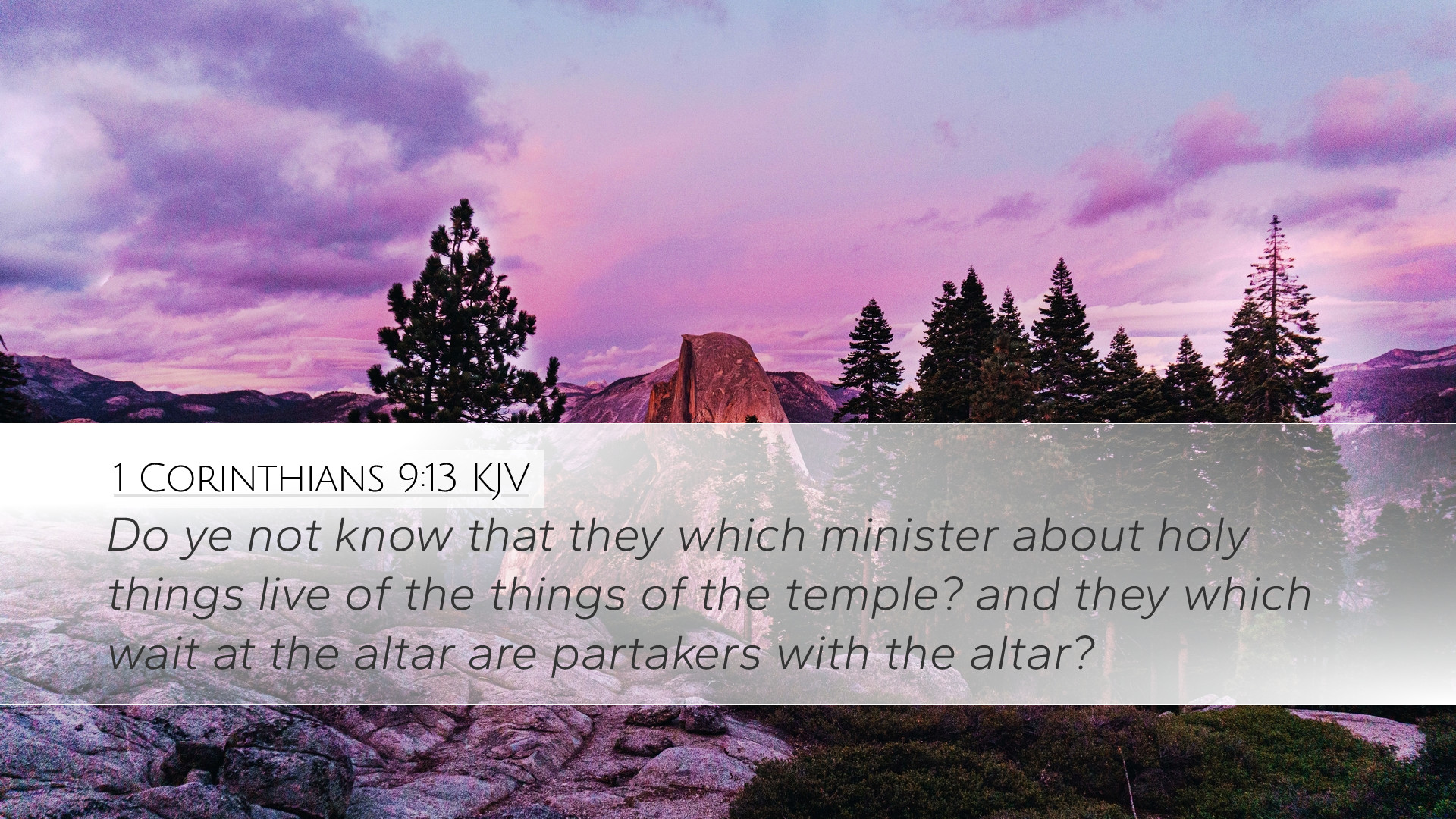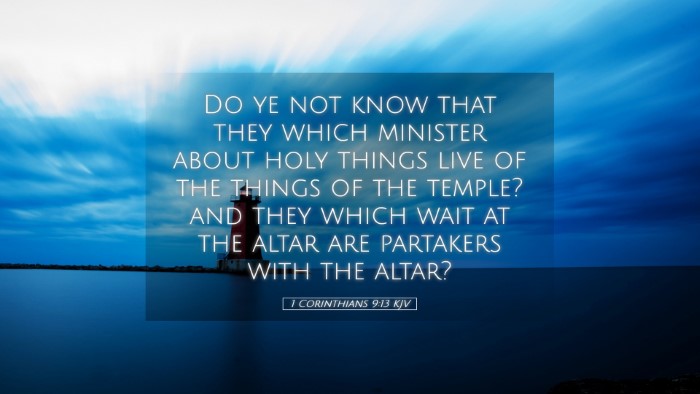Commentary on 1 Corinthians 9:13
Verse: "Do you not know that those who minister the holy things eat of the things of the temple, and those who serve at the altar share in the offerings of the altar?"
Introduction
This verse is part of a larger discourse where the Apostle Paul defends his rights as an apostle and the legitimacy of those who labor in the ministry. Drawing from both Old Testament principles and contemporary practices, Paul emphasizes the provision for those who dedicate their lives to serving God and His people.
Key Themes
- Support for Ministry: Paul illustrates a vital principle: just as the priests in the Old Testament received their sustenance through the contributions of the people, so should those who minister in the New Testament church receive support for their labor.
- Divine Order: The mention of the altar and the temple reveals God's design for the sustenance of His servants, demonstrating a continuity between the Old and New Covenants.
- Human Responsibility: While there is a divine provision, Paul underscores that it is the responsibility of the congregation to support their leaders.
Commentary Insights
Historical Context
Matthew Henry's Insight: Henry notes that this verse connects to a longstanding tradition within Israel where priests and Levites derived their living from the offerings brought to the temple. He emphasizes that Paul's argument provides clarity and integrity regarding financial support for public ministers, reinforcing a scriptural basis for their livelihood.
Spiritual Implications
Albert Barnes' Commentary: Barnes elaborates on the spiritual significance of Paul’s assertion. He points to the holistic relationship between the congregation and its leaders, suggesting that those who benefit from spiritual guidance have an obligation to support the physical needs of those who provide that guidance. He argues that neglecting this duty can lead to a breakdown in the unity of the church.
Theological Reflections
Adam Clarke's Perspective: Clarke highlights the theology underlying this support system, pointing out that it reflects God's care for both body and soul. He argues that by providing for clergy, believers acknowledge the sacred nature of their ministry. He poignantly asserts that this mutual support strengthens the bond of fellowship, which is vital in the body of Christ.
Application for Today's Church
Contemporary application of 1 Corinthians 9:13 calls upon church leaders and congregants alike to understand the importance of reciprocal relationships in ministry. Pastors and church leaders are encouraged to be transparent about their needs while congregants are reminded of their role in uplifting and supporting their ministers.
Practical Steps
- Fostering Dialogue: Churches should establish open lines of communication about financial support, ensuring that leaders feel secure in addressing their needs.
- Education on Scripture: Congregations should be taught the biblical principles surrounding support for ministry, helping to ground the practice in biblical literacy.
- Encouraging Generosity: Church boards and leaders can create initiatives that emphasize the joy and importance of giving to support church workers.
Conclusion
1 Corinthians 9:13 stands as a vital reminder of the need for shared responsibility within the body of Christ. Through the collective support of both clergy and laity, the church can thrive in its mission to spread the Gospel. By honoring this scriptural principle, congregations can ensure that their spiritual leaders are adequately cared for, allowing them to focus on their divine calling without distraction.


